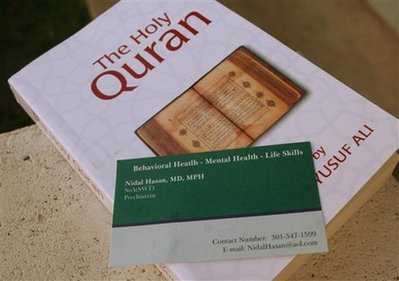By Fred Burton and Scott Stewart
The Devolution of Al Qaeda
For the past several years, we have published an annual forecast for al Qaeda and the jihadist movement. Since the January 2006 forecast, we have focused heavily on the devolution of jihadism from a phenomenon focused primarily on al Qaeda the group to one based primarily on al Qaeda the movement. Last year, we argued that al Qaeda was struggling to remain relevant and that al Qaeda prime had been marginalized in the physical battlefield. This marginalization of al Qaeda prime had caused that group to forfeit its position at the vanguard of the physical jihad, though it remained deeply invol ved in the leadership of the ideological battle.
As a quick reminder, Stratfor views what most people refer to as “al Qaeda” as a global jihadist network rather than a monolithic entity. This network consists of three distinct entities. The first is a core vanguard, which we frequently refer to as al Qaeda prime, comprising Osama bin Laden and his trusted associates. The second is composed of al Qaeda franchise groups such as al Qaeda in Iraq, and the third comprises the grassroots jihadist movement inspired by al Qaeda prime and the franchise groups.
As indicated by the title of this forecast, we believe that the trends we have discussed in previous years will continue, and that al Qaeda prime has become marginalized on the physical battlefield to the extent that we have not even mentioned their name in the title. The regional jihadist franchises and grassroots operatives pose a much more significant threat in terms of security concerns, though it is important to note that those concerns will remain tactical and not rise to the level of a strategic threat. In our view, the sort of strategic challenge that al Qaeda prime posed with the 9/11 attacks simply cannot be replicated without a major change in geopolitical alignments — a change we do not anticipate in 2009.
2008 in Review
Before diving into our forecast for the coming year, let’s take a quick look back at what we said would happen in 2008 and see what we got right and what we did not.
What we got right:
Al Qaeda core focused on the ideological battle. Another year has passed without a physical attack by the al Qaeda core. As we noted last October, al Qaeda spent a tremendous amount of effort in 2008 fighting the ideological battle. The core leadership still appears to be very intent on countering the thoughts presented in a book written in 2007 by Sayyed Imam al-Sharif, also known as Dr. Fadl, an imprisoned Egyptian radical and a founder (with Ayman al-Zawahiri) of Egyptian Islamic Jihad. Al-Sharif’s book is seen as such a threat because he provides theological arguments that counter many of the core teachings used by al Qaeda to justify jihadism. On Dec. 13, an 85-page treatise by one of al Qaeda’s leading religious authorities, Abu-Yahya al-Libi, was released to jihadist Web sites in the latest of al Qaeda’s many efforts to counter Dr. Fadl’s arguments.
Pakistan will be important as a potential flashpoint. Eight days after we wrote this, former Pakistani Prime Minister Benazir Bhutto was assassinated. Since then, Pakistan has become the focal point on the physical battlefield.
The November 2007 addition of the Libyan Islamic Fighting Group (LIFG) to the global jihadist network will not pose a serious threat to the Libyan regime. The Libyans have deftly used a combination of carrots and sticks to divide and control the LIFG.
Jihadists will kill more people with explosives and firearms than with chemical, biological or radiological weapons. We saw no jihadist attacks using WMD in 2008.
What we got mostly right:
The Algerian jihadist franchise, al Qaeda in the Islamic Maghreb (AQIM), will be hard-pressed in 2008, but not eliminated. AQIM succeeded in launching a large number of attacks in the first eight months of 2008, killing as many people as it did in all of 2007. But since then, the Algerian government has been making progress, and the jihadist group has only conducted two attacks since August 2008. The Algerians also are working closely with neighboring countries to combat AQIM, and the group is definitely feeling the heat. On Dec. 23, 2008, the Algerian government reportedly rejected a truce offered by AQIM leader Yahia Djouadi. Djouadi offered that al Qaeda would cease attacks on foreigners operating in oil fields in Algeria and Mauritania if the Algerian security service would cease targeting al Qaeda members in the Sahel region. The group is still alive, and government pressure appears to have affected its operational ability in recent months, but it di d take a bit longer than we anticipated for the pressure to make a difference.
Syria will use Fatah al-Islam as a destabilizing force in Lebanon. We had intelligence last year suggesting that the Syrians were going to press the use of their jihadist proxies in Lebanon — specifically Fatah al-Islam. We saw a bit of this type of activity in late May, but not as much as anticipated. By November, Syria actually decided to cut ties with Fatah al-Islam.
Jihadist operatives outside war zones will focus on soft targets. Major terrorist strikes in Islamabad and New Delhi were conducted against hotels, soft targets Stratfor has focused on as vulnerable for many years now. Other attacks in India focused on markets and other public places. While most of the attacks against hard targets came in war zones like Iraq and Afghanistan, there were a few attacks against hard targets in places like Pakistan, Yemen and Turkey. Granted, the Sanaa and Istanbul attacks were unsuccessful, but they were attacks against hard targets nonetheless.
What we missed:
The jihadist franchises in Yemen resurged, and the al-Shabab in Somalia found success. While we quickly picked up on these trends in April and May respectively (and beat most others to the punch with some very good analysis on these topics), we clearly did not predict them in December 2007. We knew that the influx of fighters from Iraq was going to impact countries in the region, but we didn’t specifically focus on Yemen and Somalia.
The Year Ahead
We anticipate that we will see the United States continue its campaign of decapitation strikes against al Qaeda leadership. While this campaign has not managed to get bin Laden or al-Zawahiri, it has proved quite successful at causing the al Qaeda apex leadership to lie low and become marginalized from the physical jihad. The campaign also has killed a long list of key al Qaeda operational commanders and trainers. As noted above, we believe the core leadership is very concerned about the ideological battle being waged against it — the only real way the theology of jihadism can be defeated — and will continue to focus their efforts on that battlespace.
As long as the ideology of jihadism survives (it has been around since the late 1980s), the jihadists’ war against the world will continue. It will continue to oscillate between periods of high and low intensity. In the coming year, we believe the bulk of physical attacks will continue to be conducted by regional jihadist franchise groups, and to a lesser extent by grassroots jihadists.
With the lack of regional franchises in North America, we do not see a strategic threat to the United States. However, as seen by the recent convictions in the Fort Dix plot trial, or even in the late October case where a U.S. citizen apparently committed a suicide bombing on behalf of al-Shabab in Somalia, the threat of simple attacks against soft targets in the United States remains. We were again surprised that no jihadist attacks occurred in the United States in 2008. Given the vulnerabilities that exist in an open society and the ease of attack, we cannot rule out an attack in 2009.
In Europe, where AQIM and other jihadist franchises have a greater presence and infrastructure, there is a greater threat that these franchises will commit sophisticated attacks. It must be recognized, though, that they will have a far harder time acquiring weapons and explosives to conduct such attacks in the United Kingdom or France than they would in Algeria or Pakistan. Because of this, we anticipate that they will continue to focus on soft targets in Europe. Due to differences between the Muslim communities in the United States and Europe, the grassroots operatives have been more active in Europe than they are in the United States. The May 22, 2008, attempted bombing at the Giraffe Cafe by a Muslim convert in Exeter serves as a good reminder of this.
Jihadist Franchises
After failing last year to predict the resurgence of the jihadist franchises in Yemen and Somalia, we will be keeping a sharp eye on both for 2009. Somalia continues to be a basket case of a country, and the instability there is providing an opportunity for al-Shabab to flourish. There is currently an attempt under way to bring stability to Somalia, but we anticipate that it will not succeed, due to the militant factionalism in the country. The only thing working against al-Shabab and their jihadist brethren is that the Somalian jihadists appear to be as fractious as the rest of the country; al-Shabab is itself a splinter of the Supreme Islamic Courts Council (SICC), which ruled Somalia briefly before the Ethiopian invasion in 2006. There are currently as many as four different jihadist factions fighting one anot her for control over various areas of Somalia — in addition to fighting foreign troops and the interim government.
In Yemen, things have been eerily quiet since the Sept. 17 attack against the U.S. Embassy in Sanaa and the government campaign to go after the group behind that attack. Six gunmen were killed in the attack itself, and the Yemenis have arrested numerous others whom they claim were involved in planning the attack. The Yemenis also killed or captured several significant jihadists prior to the September attack. But given the large number of Yemenis involved in the fighting in Iraq, the number of Saudi militants who have traveled to Yemen due to pressure at home, and the Salafist-jihadist influence within Yemen’s security and intelligence apparatus, it will be possible for the two jihadist franchises in Yemen to recover if the Yemenis give them breathing space.
Meanwhile, though Iraq is far calmer than it was a few years back, a resurgence in jihadist activity is possible. One of the keys to calming down the many jihadist groups in Iraq was the formation of the Awakening Councils, which are made up of many Sunni former Baathist (and some jihadist) militants placed on the U.S. payroll. With the changes in Iraq, responsibility for these Awakening Councils has been passed to the Iraqi government. If the Shiite-dominated government decides not to pay the councils, many of the militants-turned-security officers might return to their old ways — especially if the pay from jihadist groups is right. Intelligence reports indicate that Baghdad plans to pay only a fraction of the approximately 100,000 men currently serving in the Awakening Councils. The Iraqi central government apparently plans to offer the bulk of them civilian jobs or job training, but we are skeptical that this will work.
Elsewhere, Pakistan is once again the critical location for the jihadists. Not only is Pakistan the home of the al Qaeda core leadership as its pursues its ideological war, it also is home to a number of jihadist groups, from the Afghan Taliban and the Tehrik-i-Taliban Pakistan in the northwest to Lashkar-e-Taiba and Jaish-e-Mohammed in the northeast, among several others. The coming year might prove to be pivotal in global efforts against the jihadists in Pakistan. Pakistan already is a country in crisis, and in some ways it is hard to imagine it getting much worse. But if Pakistan continues to destabilize, it could very well turn into a failed country (albeit a failed country with a nuclear arsenal). Before Pakistan becomes a failed state, there are a number of precursor stages it probably will pass through. The most immed iate stage would entail the fall of most of the North-West Frontier Province to the jihadists, something that could happen this year.
This type of anarchy in Pakistan could give the jihadists an opportunity to exert control in a way similar to what they have done in places like Afghanistan and Somalia (and already in the Pakistani badlands along the Afghan border.) If, on the other hand, Pakistan is somehow able to hold on, re-establish control over its territory and its rogue intelligence agency and begin to cooperate with the United States and other countries fighting the jihadists, such a development could deal a terrible blow to the aspirations of the jihadists on both the physical and ideological battlefields. Given the number of plots linked to Pakistan in recent years, including the Nov. 26 Mumbai attack and almost every significant plot since 9/11, all eyes will be watching Pakistan carefully.
This report may be forwarded or republished on your website with attribution to www.stratfor.com




 Before I lived in Turkey, I thought the word “jihad” was a word of hate and violence. I associated it with suicide bombers and crazed fanatics who flew airplanes into buildings.
Before I lived in Turkey, I thought the word “jihad” was a word of hate and violence. I associated it with suicide bombers and crazed fanatics who flew airplanes into buildings.